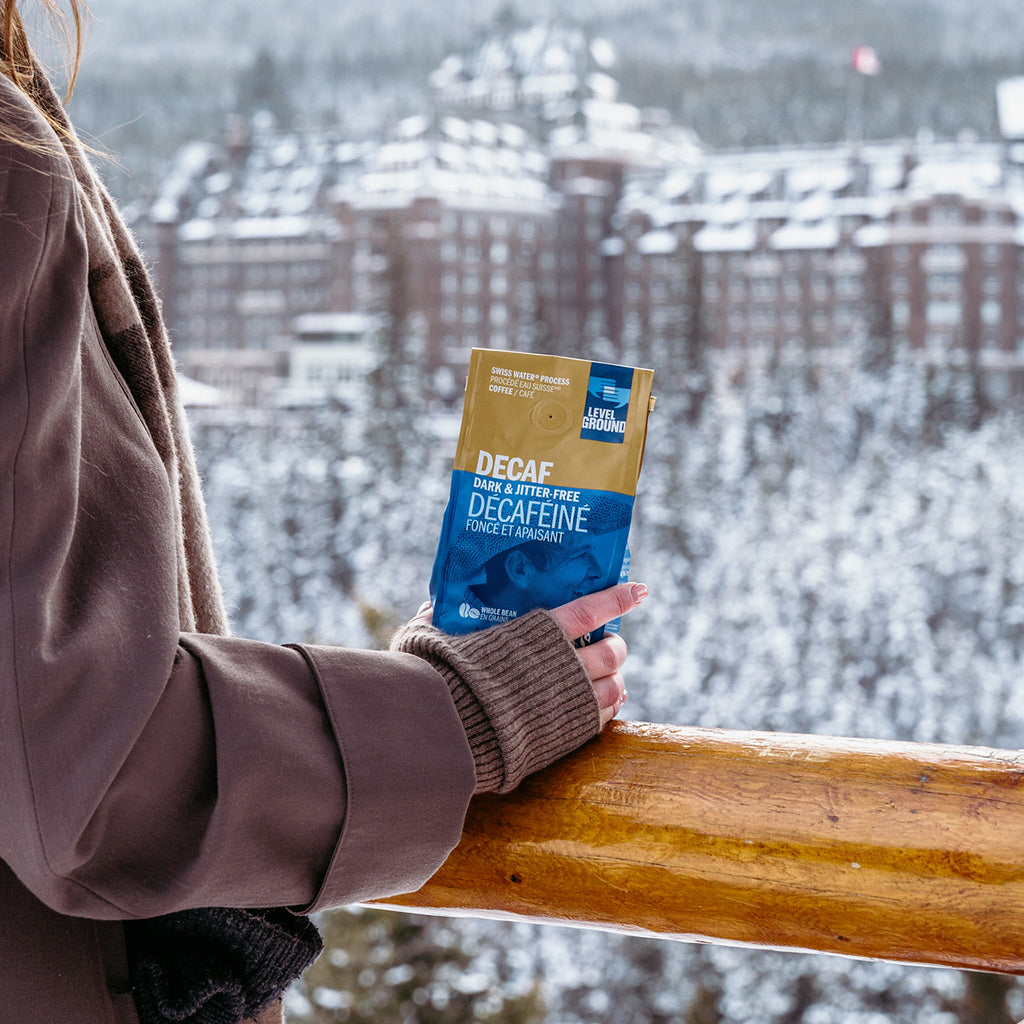
The term "decaf" has been known to spark some pretty intense conversations between coffee lovers. Unfortunately, there's a lot of misinformation about decaf coffee out there — not to mention some new techniques for decaffeinating coffee that many people aren't informed about.
Let's Debunk Five Popular Myths About Decaf Coffee
Myth #1: Decaf Doesn't Have ANY Caffeine
Nope — decaffeinated coffee still contains a bit of caffeine. The majority of the caffeine is removed in the decaffeination process, however a small percentage remains. Decaf is required to be a minimum of 97% caffeine-free by law. We’re often 98-99%, so our coffee isn't likely to keep you up at night. To put things into perspective — if a standard cup of coffee contains about 100 mg of caffeine, the decaffeinated version will only have 2-3 mg per cup.
Myth #2: Decaf Has No Health Benefits
The debate will always continue, but the potential antioxidant-based health benefits come from the polyphenols that naturally occur in coffee. Some of these are minimally removed during the decaffeination process, but the majority are kept intact. Chlorogenic acids and beneficial minerals are still very much present in the coffee. When you remove the caffeine, that's the only thing that's removed — those lovely antioxidants will still be in your brew.
Myth #3: Decaf Contains Dangerous Chemicals
Decaffeination is achieved by soaking the coffee beans to mobilize the caffeine (a solvent, natural or otherwise) and solutions to extract the caffeine. Originally, decaffeination was developed using some pretty serious and dangerous chemical solvents. As technology has advanced, safer and natural methods have been developed.
How are Level Ground Beans Decaffeinated?
Our new Decaf uses the Swiss Water® process which is totally organic and chemical free. This process removes 99.9% of caffeine!
Check out this video that explains how the chemical-free Swiss Water® process is completed to make our Decaf Coffee!
Myth #4: Decaf Tastes Bad
Having a bad cup of decaf coffee could put you off decaf for good. This probably has more to do with the freshness of the coffee rather than it being decaffeinated. When a decaf is tasting like "dirt" or "sludgy," this could be for a variety of reasons: it was sitting for a long time, it was made of stale coffee, or it was poor quality coffee before being decaffeinated. If bad “regular” coffee is used for decaffeination, the result will still be bad —just as decaf. If you're not using specialty coffee beans, that will always affect the flavour of your coffee, decaf or not.
However, that being said…
Myth #5: Decaf Tastes Exactly the Same as Regular Coffee
Unfortunately, the decaffeination process will extract a bit of flavour from the beans, so the taste likely won't be the same as caffeinated coffee. Caffeine is attributed to about 1% of the total bitterness in coffee. Without the bite of caffeine, we’re subconsciously aware of this difference as the taste balance isn’t as complete. A darker roast can give you the added strength and bitter flavour that your subconscious is craving from a cup of joe.
However, it's important to note that this isn't a major change! The most devoted coffee drinker may be able to notice a subtle difference between their regular brew and its decaf counterpart, but it's not much. If you like to drink coffee in the evening or are sensitive to caffeine, you'll undoubtedly be able to enjoy a bold, tasty cup of coffee without the jittery effects.
Love coffee and get a Good Night's Sleep
We're proud to offer our own decaf coffee, a natural-water decaffeinated, clean, full-bodied coffee that leaves subtle hints of cocoa and blackcurrants on your palate. We regularly practice cupping to ensure the fair trade coffee beans we bag up for you are of the highest quality and will provide you with the best coffee you can put into your coffee mug.
